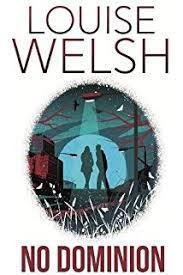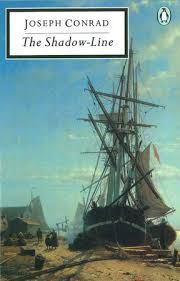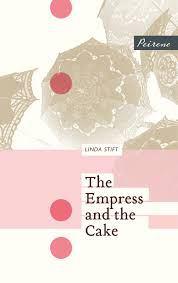I read a few books over Christmas and in the run-up to New Year that I didn’t get a chance to write a post about. Going into 2018 that gives me a backlog of about six books, which is a little oppressive so while the books deserve better I’m going to cover a few of them off in a single post.
No Dominion, by Louise Welsh

This is the third of Louise Welsh’s plague times trilogy. I wrote about the first and second novels in the series here and here.
No Dominion opens a few years after the events of the first two novels and their protagonists Stevie Flint and Magnus McFall are now part of a community of survivors living in the Orkney islands. Stevie is their mayor and Magnus has become the adoptive father of one of the child survivors, now an adolescent.
The adults have tried to shield the children from the full horrors of what the world became as it fell, and unfortunately have succeeded a little too well. When strangers come to the island they don’t have to work too hard to lure several of the children away with them to the mainland. Stevie and Magnus have to team up and brave the dangers of the post-apocalypse world to attempt a rescue.
As ever there’s lots of good set-pieces here and Welsh’s view of the new societies being thrown up after the loss of our own is persuasive. There’s a feudal set-up; a small community of religious fanatics; and a resurgent Glasgow where a self-styled Provost has set the city partly back on its feet but where his methods have sparked increasing local resistance.
‘Provost Bream is an exceptional man, charismatic, single-minded. He’s determined to get things up and running again and he won’t allow a little squeamishness to get in the way. We might not agree with his methods, but we have to accept that he has a point. The world was always unfair. Since the Sweats, divisions have simply become a little starker.’
The downside is that the plot is heavily coincidence-driven. Stevie and Magnus aren’t particularly well equipped to survive what they encounter and at least twice only do so because they happen to turn up just as the new societies they encounter are facing some kind of internal crisis. One lucky rescue I’ll accept. By the time it gets to two or three it gets a bit stretched for me.
If you’ve enjoyed the first two this is definitely worth reading. It’s good to reconnect with the characters and Welsh’s world-building is as strong as her world-tearing-downing. It’s probably the weakest of the trilogy, but it makes a fitting end to the series.
Kindle titling
By way of an aside, several publishers now put marketing blurb into the title when submitting to Amazon which the kindle software then duly transcribes as the full title of the book. It’s quite annoying and means that if you do get this on kindle it’s not simply called No Dominion, but instead actually shows up on your device with the title “No Dominion: An action-packed post-apocalyptic thriller (Plague Times Trilogy)” which seems somewhat excessive.
Similarly, Andrew Hurley’s Devil’s Day is actually titled on your device “Devil’s Day: From the Costa winning and bestselling author of The Loney”. Jennifer Egan’s Manhattan Beach becomes “Manhattan Beach: 2017’s most anticipated book” at which point I’ll just buy it in hardcopy since seeing that on my kindle each time I open it starts to feel a bit hectoring.
The Shadow Line, by Joseph Conrad

Honestly, I read this because it’s the book that triggers the action in Carlos Maria Dominguez’s The Paper House. Having now read it I don’t think it has any particular meaning in The Paper House and was as good a novel to kick things off there as any other. Still, it’s fun and so worth reading in its own right.
This is one of Conrad’s sea yarns rather than his more psychological pieces (though there’s plenty of psychology in here). A young man takes his first command only to find his ship becalmed and his crew laid low by disease. The first mate becomes convinced they’ve been cursed by the ship’s previous captain who died a madman.
Conrad’s a marvel at describing the sea and I’ve come to really enjoy his adventure stories, even if they do lack the subtlety of the marvelous The Secret Agent. I couldn’t resist including this quote:
It was a terribly lifeless afternoon. For several days in succession low clouds had appeared in the distance, white masses with dark convolutions resting on the water, motionless, almost solid, and yet all the time changing their aspects subtly. Toward evening they vanished as a rule. But this day they awaited the setting sun, which glowed and smouldered sulkily amongst them before it sank down. The punctual and wearisome stars reappeared over our mastheads, but the air remained stagnant and oppressive.
Despite getting off to a rocky start with Conrad I’ve become something of a fan.
The Empress and the Cake, by Linda Stift and translated by Jamie Bulloch

What to say about this one? It’s a dark fairy-tale in which a young woman who’s recovered from an eating disorder meets an old woman in contemporary Vienna who appears to be either the Empress Sissi or to have modelled herself closely upon her.
This is a deeply disturbing novella and if you’ve ever come even near any kind of eating disorder yourself I’d advise caution before reading it. The protagonist finds herself trapped in the old woman’s world and spiralling back into bulimia and anorexia. As she observes: “Everything was all right if I was thin.”
It’s a deeply strange novella with the old woman using her captive to steal objects once belonging to the Empress from Viennese museums and it operates on a sort of terrible dream-logic. I read it while in Vienna which helped hugely in terms of getting some of the references and it’s definitely worth reading the Wikipedia page on Empress Sissi before starting.
Don’t expect this to make real-world sense. It has an internal logic but it’s the logic of madness rather than reality and this is more an exploration of obsession than an attempt to portray a realistic situation. It is very, very good but not for the faint-hearted or the weak of stomach.
Epitaph for a Spy, by Eric Ambler

I’ve read two previous Amblers: Uncommon Danger, and The Mask of Dmitrios. This will probably be my last for a while and in truth I chose this particular one in part as I liked the cover.
Here we have the usual hapless Ambler protagonist – Josef Vadassy – a stateless refugee living in 1930s France. Vadassy finds himself in trouble while on holiday in the French riviera when he sends some photos to be developed only to find that due to some mix-up he’s submitted photos of coastal defences rather than his own pictures.
The nice twist here is Vadassy’s status. The police work out almost immediately that he’s not a spy, but someone is and just having those photos is itself illegal. He is sent to the small hotel at which he’s staying to discover which of his fellow guests is the real spy under threat of deportation if he fails. For Vadassy, deportation could easily mean death.
The curious thing with Ambler is how up to date his novels always seem. Here we have the backdrop of Europe on the eve of war. Vadassy has roots in Yugoslavia and Hungary and the particulars of why he has no country to call his own are of that time and those places. 80 or so years later and we still have stateless people, desperate refugees, and of course spies. Vadassy’s precarious position is one that many people would still recognize today.
In a funny way this is a bit of a classic country house crime novel. It turns out that most of the other guests at the pension have secrets to hide and Vadassy soon finds himself lost in a web of danger and deceit. Honestly it stretches credulity a bit quite how many of these people do have something going on, but the same is true for a great many cosy crime novels so I think it’s forgivable.
The hotel setting works well here and the characters are a lot of fun: a shell-shocked British major and his strangely silent wife; a pair of attractive young Americans whose account of their travels doesn’t quite add up; a hotel manager who enjoys spending time with the guests more than doing his job; an obese German couple having the time of their lives amidst it all and many more.
This is much better than the much more widely praised The Mask of Dmitrios. Vadassy is as dim as most Ambler protagonists but is sympathetic and has a good reason to actually be involved in the story. The 1930s European backdrop is great and while the range of secrets present in the hotel is literally incredible it does allow Ambler to pack a lot into a short space. Overall, recommended.
The Inimitable Jeeves, by P.G. Wodehouse

Chronologically this is the second of the Jeeves’ collections, so far as I know anyway. It’s short stories but loosely tied together to create an overall narrative. Honestly, I’d read them more as short stories and space them out a bit. Wodehouse is brilliant but too many too quickly and you risk the underlying architecture showing which isn’t to their benefit.
Years back I wrote about the first Jeeves’ collection, Carry on Jeeves, which includes the story where he’s hired by Bertie. I wrote quite a bit there about how Wodehouse structures these stories and to be honest I think it’s one of the better pieces I’ve done here.
Anyway, not much else to say save that this is P.G. Wodehouse with his most glorious characters (sorry Empress and Psmith!) and a cast of: terrifying aunts; young men who mostly make up in spirit what they lack in intellect; young women who tend either to the sporty or the serious or to both; and vicars and con-men; dangerously precocious children and much more. It’s wonderful.
Others yet to come
I also read Nicola Pugliese’s Malacqua and a C.P. Cavafy poetry collection but those I do hope to do individual posts for over the coming week.
Filed under: Ambler, Eric, Comic fiction, Conrad, Joseph, German, Post-apocalypse, Vienna, Welsh, Louise, Wodehouse, P.G. Tagged: Eric Ambler, Joseph Conrad, Louise Welsh, P.G. Wodehouse

